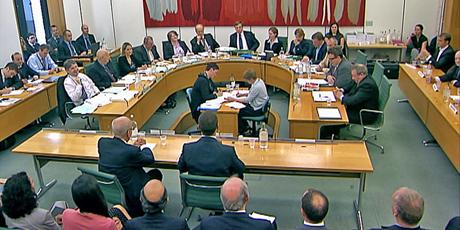Introduction
Select Committees were established and expanded during the 1970s and 1980s to ensure that Parliament could better scrutinize the Government and hold it to account. Most Committees perform without fanfare most of the time.
But in recent years, some Committees seem to have come to see their job as holding the wider world to account along other institutions and individuals which have some relationship with government. Select Committee hearings on high profile issues are increasingly characterized by an extremely aggressive style of questioning. For some witnesses, they feel they are on trial – no longer witnesses but the accused.
The consequences of a poor performance can be severely damaged reputation or even loss of employment. While most evidence sessions are not like this, if there is a public policy controversy lying behind the Select Committee inquiry, then your evidence session may take on a different hue.
What To Expect
• Usually a short, consensual and discursive style of questioning designed to unpack or help the committee understand, an issue. It will feel intense and you will feel vulnerable
• A session that may not just be a parliamentary event but a media/ public event. Preparing just with your public affairs people will not be helpful. Think about how personal and corporate reputation may be affected by the hearing and how the media will cover it
• Possible expert knowledge and insight from individual members of the Committee if this is truly an area of specific interest for them; probably not. Individual MPs may possibly grandstand for the cameras to burnish their own reputation or support/appeal to constituents or groups (e.g. Trade Unions, charities, business)
• You’re not in charge. It is not a board meeting or staff presentation. For CEOs it can feel like some unfortunate role-reversal. You are no longer ‘top dog’; you are now required to bow before people who you feel don’t understand your company or the drivers of the business world, and may appear intellectually shallow
• It is unlikely that legislators will have paid much interest to your background or experience. In fact, it is unlikely that they will have even heard of you; they may well not have read your evidence
Dos and don’ts
• Do prepare thoroughly. Think about what you want to present and how the audience will receive it. Plan your narrative. Don’t try and memorise a hundred answers to a hundred questions. You’ll end up confused or robotic
• Do understand the motivations and backgrounds of those holding the inquiry and any pre-determined views, or misguided beliefs. Monitor previous and forthcoming evidence sessions to ensure that you are up to speed with what others are saying (potentially about you) and to identify avenues of questioning
• Do prepare a nice turn-of-phrase.
You can make appropriate use of humour but never be disrespectful or flippant to a politician – they have a strong sense of self and hold the whip-hand here
• Do try to come across as informed and helpful but not subservient. Be concise but not monosyllabic; engaged not detached. As in media interviews, use examples and simple language
• The more aggressive the committee becomes, the calmer you should become
• Beware of making impromptu promises, concessions or policy commitments – you will be held to it! If you don’t know the answer or have the information to hand, apologise and promise to get it to the Committee as soon as possible
• Correct any inaccurate statements that Committee members make – if you don’t, it will be on the record and taken that you concur
• Don’t become frustrated or angered that the process isn’t fair – because it isn’t
• Do remember that a high proportion of select committee recommendations are taken up by the Government so appearing in front of a Committee is an important opportunity to directly influence its members and the political discourse
If you want to speak to one of our journalists in order to find out more about the media or want to enquire about booking a training session, please call us on +44 (0)20 7323 2770 or email team@electricairwaves.com.

